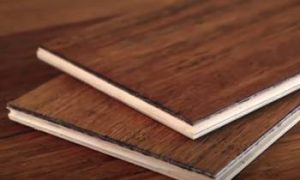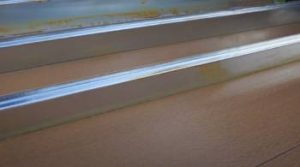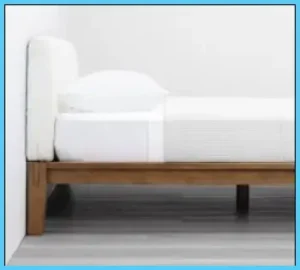Welcome to the arena of window treatments! Today, we’re pitting two giants against each other: Bali and Hunter Douglas, two of the most respected names in the world of cellular shades.
This engaging and comprehensive comparison of Bali and Hunter Douglas cellular shades aims to highlight the unique features, advantages, and disadvantages of each brand.
A Brief Comparison Table
| Bali Cellular Shades | Hunter Douglas Cellular Shades | |
| Customizability | High (Wide range of colors, textures, and fabrics) | Moderate (Limited compared to Bali, but still provides good options) |
| Cost | Budget-friendly to mid-range | Mid-range to high-end |
| Durability | Good but varies (Some users report flimsy mechanisms) | Excellent (Known for superior craftsmanship and longevity) |
| Innovation | Moderate (Good quality shades with basic features) | High (Innovative features like smart home integration) |
| Insulating Properties | Excellent (Cellular design provides good insulation) | Excellent (Cellular design provides good insulation) |
| Light Control | Excellent (Various light-filtering options available) | Excellent (Custom light control features) |
| Sound Absorption | Good (Cellular design helps absorb sound) | Good (Cellular design helps absorb sound) |
Bali Cellular Shades: The Lowdown

So, is Bali a good brand for shades? Absolutely. Bali has been providing quality window treatments for several decades, solidifying its reputation as a reliable and trustworthy brand.
Pros of Bali Cellular Shades
Bali shades stand out due to their customizability. Available in a plethora of colors, textures, and fabrics, they offer a versatile palette that caters to the aesthetics of any home. Another advantage is their cost-effectiveness. Bali shades deliver quality without breaking the bank, making them an excellent choice for budget-conscious homeowners.
Cons of Bali Cellular Shades
While Bali shades are admired for their style and affordability, they have been criticized for their durability. Some users report that the mechanism can sometimes be a little flimsy. Additionally, Bali shades may lack the luxurious feel that some homeowners seek in their window treatments.
Read More: About Differences 3 Day Blinds Vs. Hunter Douglas
Hunter Douglas Cellular Shades: The Insider Scoop

Hunter Douglas shades are definitely worth considering. These high-quality window treatments are known for their innovation and durability. But are they as good as they’re made out to be?
Pros of Hunter Douglas Cellular Shades
One of Hunter Douglas’s major strengths is their innovative design. They regularly introduce cutting-edge features like PowerView Motorization, which allows for smart home integration. Also, Hunter Douglas shades are renowned for their superior craftsmanship and longevity.
Cons of Hunter Douglas Cellular Shades
As for the downsides, Hunter Douglas shades are often seen as pricey. Their advanced features and superior quality come at a cost, making them less accessible for some customers. Secondly, their customization options are somewhat limited compared to Bali.
Comparing Bali and Hunter Douglas: A Side-By-Side Analysis
Now that we’ve looked at each brand independently, what shades are comparable to Hunter Douglas and Bali? There are many players in the market, but few come close to these titans.
While Bali shades offer variety and affordability, Hunter Douglas excels in quality and innovation. But there’s no one-size-fits-all answer here. Your choice will depend on your priorities, whether that’s budget, aesthetics, durability, or tech features.
The Impact of Cellular Shades on Your Home
Cellular shades, no matter the brand, offer benefits that go beyond aesthetics. Both Bali and Hunter Douglas cellular shades can significantly affect your home’s comfort and energy efficiency. Here’s how.
- Insulation
One of the most commendable features of cellular shades is their insulating properties. The unique, honeycomb-like structure traps air, creating a barrier between the window surface and the room’s interior. This feature helps maintain a stable temperature inside your home, reducing the strain on your heating and cooling systems and potentially cutting down your energy costs.
- Light Control
Cellular shades offer excellent light control. Depending on the fabric chosen, they can either filter or completely block out sunlight, allowing you to create the perfect ambiance in your space. Bali shades, with their extensive range of light-filtering options, can be a wonderful choice here. But Hunter Douglas, with their custom light control features, isn’t far behind.
- Sound Absorption
Another less-known advantage of cellular shades is their ability to absorb sound. If you’re living in a noisy neighborhood or near a busy street, cellular shades can help dampen the noise, creating a peaceful environment inside your home.
Making the Decision: Bali or Hunter Douglas?
It’s a tough call, isn’t it? Both Bali and Hunter Douglas have a lot to offer. But here’s a way to decide. Consider your priorities.
If you’re on a tight budget but still want good quality and a range of options to choose from, Bali cellular shades would likely suit you best. On the other hand, if you value innovation, smart home integration, and are willing to invest in top-notch durability and craftsmanship, Hunter Douglas might be the perfect fit.
A Pro Tip
Before making your final decision, consider reading customer reviews and ratings. User experiences can give you invaluable insights into the performance, durability, and overall value of Bali and Hunter Douglas shades. Also, don’t forget to factor in the warranty each brand provides. It’s an often overlooked yet significant aspect of your purchase.
Final Thoughts
In conclusion, Bali and Hunter Douglas cellular shades, each with their unique selling points, are both solid choices for your home. Both are reputable brands that have made significant contributions to the world of window treatments.
So, make a list, jot down your needs and preferences, consider your budget, and then plunge into the world of Bali and Hunter Douglas cellular shades. You won’t be disappointed, irrespective of the side you choose.
At the end of the day, the goal is to find window treatments that not only add beauty to your home but also offer functionality and efficiency. And in this quest, both Bali and Hunter Douglas have got you covered.
FAQ Section
Bali is a part of Springs Window Fashions, a company based in Middleton, Wisconsin, USA. Most Bali shades are manufactured in American factories.
Major competitors of Hunter Douglas include Bali, Levolor, and Graber. These brands offer a variety of window treatments, including cellular shades.
Hunter Douglas is a premium brand, and their products are priced accordingly. Prices vary depending on the specific product and customization options, but expect to pay a bit more for their innovative designs and superior quality.
Read More: About Alta Honeycomb Shades
Wrapping it Up
In the clash of Bali and Hunter Douglas cellular shades, both emerge as champions in their own rights. Bali offers the thrill of variety and the relief of affordability. Hunter Douglas, on the other hand, impresses with its robust quality and innovative design.
So, who’s the winner? Well, that depends on you, dear reader. Your unique needs and preferences will decide the victor in this battle of the shades.



